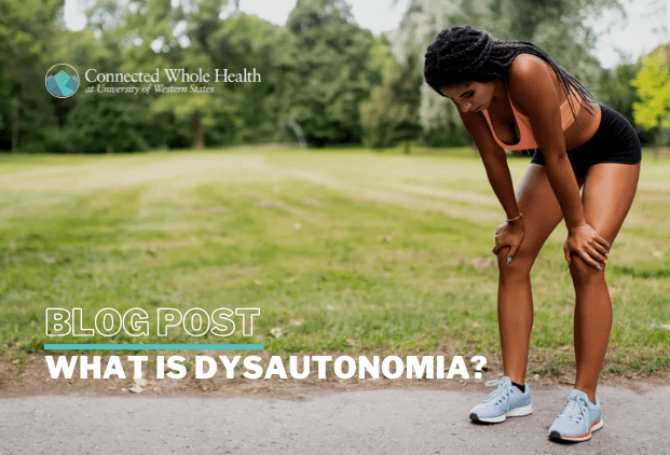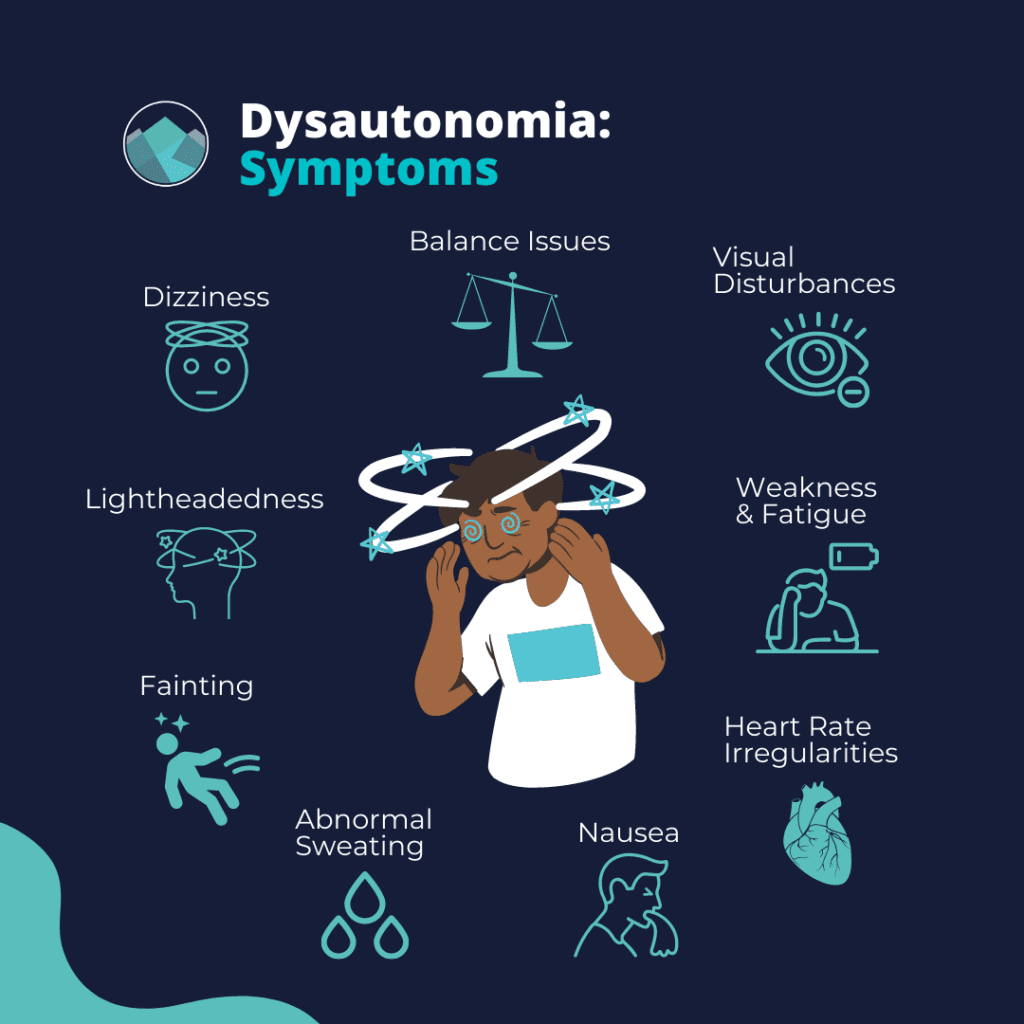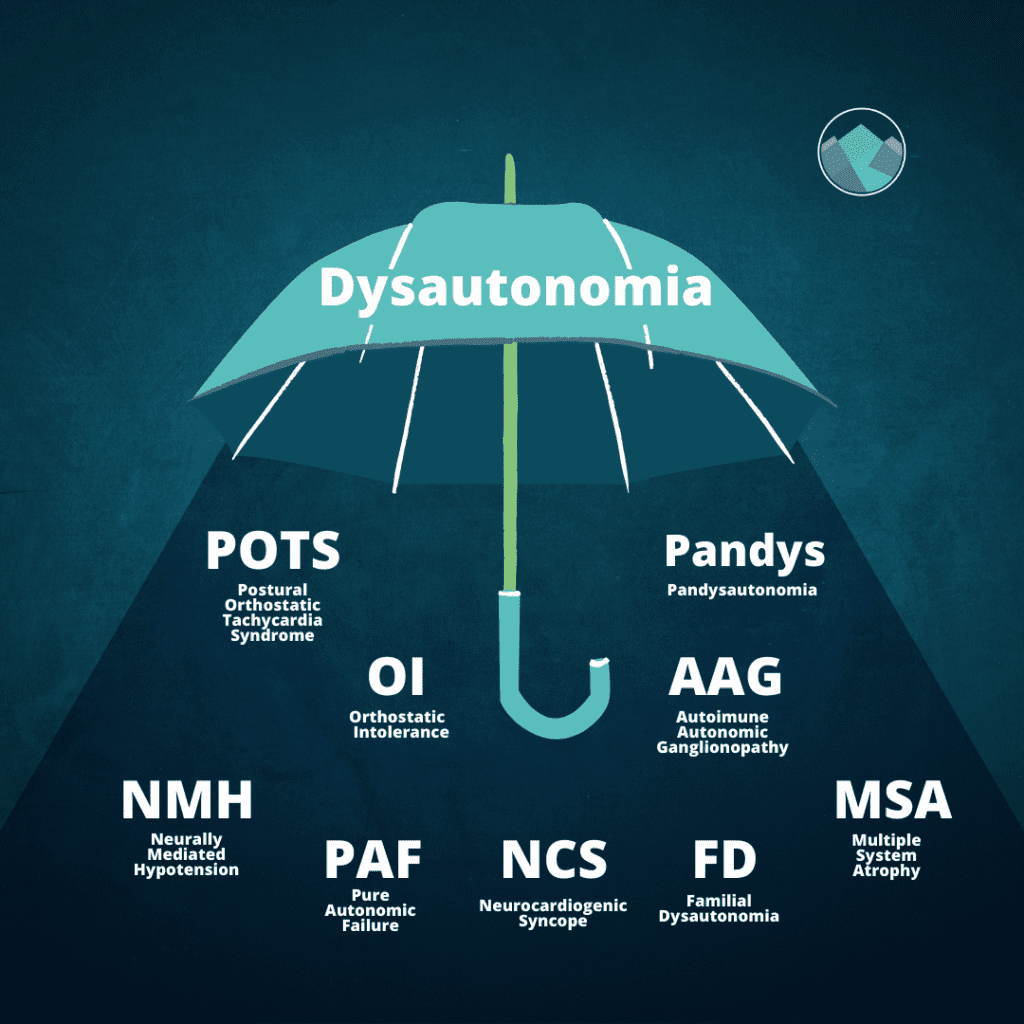
June 15, 2023
Dysautonomia is a disorder of the autonomic nervous system, which involves a broad and variable range of non-specific symptoms, both physical and psychological.

Some symptoms of dysautonomia include:
- Heart rate irregularities
- Fatigue
- Pain
- Dizziness
- Visual disturbances
- Abnormal sweating
- Breathlessness/Rapid breathing
- Balance issues
- Weakness
According to Dysautonomia International, only 25% of people with symptoms of dysautonomia are diagnosed on their first visit. Others have had to wait for years before the condition is identified!
What is Dysautonomia? Dysautonomia is an abnormal regulation of your autonomic nervous system.
Dysautonomia is when there is a problem with part of the nervous system that controls blood pressure, heart rate, digestion, and temperature. Dysautonomia can occur due to various reasons but commonly following a traumatic brain injury, traumatic event, autoimmune condition, or traumatic event.

Dysautonomia is a malfunction of the autonomic nervous system, which can cause dysregulation of heart rate, blood pressure, digestion, kidney function, and temperature control. It is not rare, and over 70 million people worldwide live with various forms of dysautonomia.
A common form of dysautonomia is Postural Orthostatic Tachycardia Syndrome (POTS). To learn more, check out Connected Whole Health’s blog post:
Https://www.uwsconnectedhealth.com/postural-orthostatic-tachycardia-syndrome-pots/
Dysautonomia means “dysfunction” of the “autonomic nervous system.” The autonomic nervous system controls involuntary bodily functions such as heart rate, breathing, blood pressure, digestion, sleep cycles, body temperature control, sweating, and more.
Dysautonomia comes with a wide range of disability – from mild to very disabling. Some dysautonomia patients can continue with work, school, and social activities, while many cannot.
Postural orthostatic tachycardia syndrome (POTS) is a type of dysautonomia (dysfunction of the autonomic nervous system). POTS causes an abnormal increase in heart rate when standing up, which can lead to chest pain, shortness of breath, and fainting. POTS affects between 1-3 million people in the United States alone, with females being at a higher risk than males.
Do you experience these symptoms or know someone who does?
The POTS specialists at Connected Whole Health can give you a proper diagnosis and tailor a treatment plan for you.
✒️ Chief Editor: Dr. Bill Moreau | DC, DACBSP, FACSM | Chief Medical Officer University of Western States
